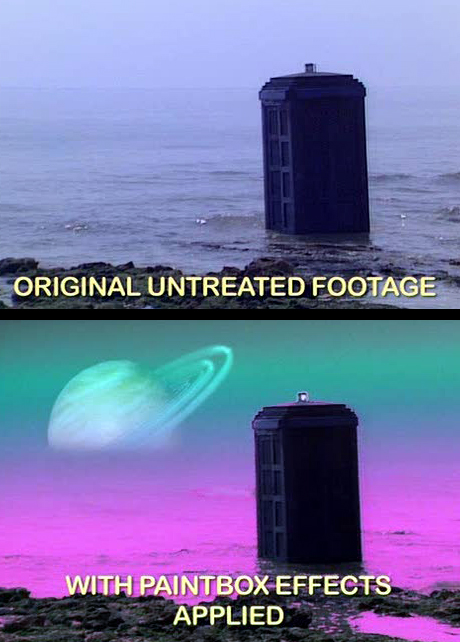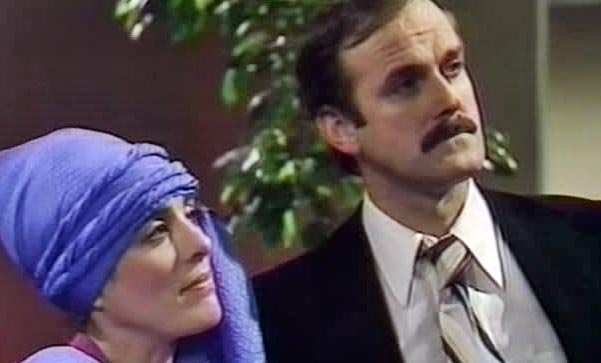Transmat:Doctor Who: Difference between revisions
No edit summary |
Eyacorkett (talk | contribs) mNo edit summary |
||
| (109 intermediate revisions by 8 users not shown) | |||
| Line 1: | Line 1: | ||
__NOTOC__ | __NOTOC__ | ||
{{template:transmat: | {{template:transmat:{{PAGENAME}}}} | ||
<div | <div id="tr-box-container" style="width:98%"> | ||
<div id="box-container" class="box-cols" style=margin-top:40px> | <div id="tr-box-container" class="tr-box-cols" style=margin-top:40px> | ||
<div class= | <div class="tr-box one"> | ||
{{thead|The women who gave ''Doctor Who'' back to us}} | |||
[[file:JaneTranter.jpg|center|link=http://tardis.wikia.com/wiki/Transmat:Doctor_Who?file=David_Tennant_interviews_Doctor_Who_Producers_-_Doctor_Who_Confidential_-_BBC]] | |||
{{tcap|Click for video}} | |||
Think ''Doctor Who'' is just for boys? Don't you believe it. Not only was the show's [[Verity Lambert|very first producer]] a woman, but it would never have come back without the fierce advocacy of '''[[Jane Tranter]]''' and '''[[Julie Gardner]]'''. Considering her importance to ''Doctor Who'' it's somewhat ironic that Tranter's only on-screen ''credits'' are for ''[[Torchwood: Miracle Day]]''. But Gardner, her "partner in crime", is tied only with [[Russell T Davies]] as the most prolific producer in ''[[Doctor Who]]'' history. | |||
</div> | </div> | ||
<div class="tr-box two"> | |||
{{thead|Industrial action}} | |||
[[File:Paintbox.jpg|link=http://tardis.wikia.com/wiki/Transmat:Doctor_Who?file=BBC%2527s_Historic_Mainframe_Arrives%2521%2521_%2528Quantel_Paintbox_DPB_7000%2529_This_created_many_80s_programs%2521%2521]] | |||
{{tcap|Click for a video of a [[21st century]] geek as he takes delivery of one of the two Paintboxes used by the BBC in the 1980s}} | |||
The '''[[Quantel Paintbox]]''' was a graphics workstation that allowed ''[[Doctor Who]]'' to have a primitive form of [[colourist|colour grading]] in the [[1980s]]. To find out more about the "business of show", go to '''[[:category:production information]]''', where you can read about [[colour separation overlay]], [[low loader]]s, [[telerecording]]s, [[vidFIRE]], [[rostrum camera]]s, [[2" quad]] tape, [[Ealing Studios]] and tons more.</div> | |||
<div class="tr-box one"> | |||
{{thead|Surprising guest star}} | |||
{{surprising guest}} | |||
</div> | </div> | ||
<div class="box two" | <div class="tr-box two"> | ||
{{thead|Ex-Doctors never die, they just make audios}} | |||
The careers of the [[Fifth Doctor|Fifth]], [[Sixth Doctor|Sixth]], [[Seventh Doctor|Seventh]] and [[Eighth Doctor]]s are '''significantly''' longer [[Big Finish Doctor Who audio stories|in audio]] than on television. Check out their latest works at '''[[:category:{{CURRENTYEAR}} audio stories]]'''. | |||
</div> | </div> | ||
<div class="tr-box one"> | |||
{{thead|The relevance of comics}} | |||
Officially, only ''[[The Lodger (TV story)|The Lodger]]'' has been explicitly adapted from a comic strip — also called ''[[The Lodger (comic story)|The Lodger]]''. | |||
[[File:10MickeyFootball.jpg|center|link=http://tardis.wikia.com/wiki/Transmat:Doctor_Who?file=Craig_asks_The_Doctor_to_leave_-_Doctor_Who_-_BBC]] | |||
However, several stories have clearly taken material from comic strips — often those in ''[[Doctor Who Magazine]]''. ''[[The Shakespeare Code (TV story)|The Shakespeare Code]]'' contains a good amount of material from ''[[A Groatsworth of Wit (comic story)|A Groatsworth of Wit]]'', and the notion of the Doctor absorbing the [[time vortex]] in order to spare a [[companion]] was explored in both ''[[The Parting of the Ways (TV story)|The Parting of the Ways]]'' and ''[[The Flood (comic story)|The Flood]]''. | |||
</div> | |||
<div class="tr-box two"> | |||
{{thead|The first of the "money men"}} | |||
'''[[Donald Baverstock]]''' was the [[British Broadcasting Corporation|BBC]] executive who set the the wheels in motion that eventually led to the creation of ''[[Doctor Who]]''. Essentially the original commissioner of the programme, he hired [[Sydney Newman]] and later imposed a sense of financial responsibility upon [[producer]] [[Verity Lambert]]. | |||
But Baverstock wasn't the only '''[[:category:BBC executives|BBC executive]]''' to have a profound impact on the development of ''Doctor Who''. Make sure you read about [[Lorraine Heggessey]], [[Mark Thompson]], [[Danny Cohen]], [[George Entwistle]], [[Tony Hall]], [[Shaun Sutton]], [[Sydney Newman]] and others. </div> | |||
<div class="tr-box two"> | |||
{{thead|Things released on [[{{CURRENTDAY}} {{CURRENTMONTHNAME}} (releases)|{{CURRENTDAY}} {{CURRENTMONTHNAME}}]] }}{{:{{CURRENTDAY}} {{CURRENTMONTHNAME}} (releases)}} | |||
</div> | |||
<div class="tr-box one"> | |||
{{thead|Did you know…}} | |||
{{Doctor Who Wiki/DYK}} | |||
</div> | |||
<div class="tr-box three"> | |||
{{thead|[[{{CURRENTDAY}} {{CURRENTMONTHNAME}} (people)|{{CURRENTDAY}} {{CURRENTMONTHNAME}}]] births and deaths }}{{:{{CURRENTDAY}} {{CURRENTMONTHNAME}} (people)}} | |||
</div> | |||
{{#ifexpr: {{PAGESIZE:{{CURRENTDAY}} {{CURRENTMONTHNAME}} (production)|R}} < 440|| | |||
<div class="tr-box two"> | |||
{{thead|Production history for [[{{CURRENTDAY}} {{CURRENTMONTHNAME}} (production)|{{CURRENTDAY}} {{CURRENTMONTHNAME}}]] }}{{:{{CURRENTDAY}} {{CURRENTMONTHNAME}} (production)}} | |||
</div>}} | |||
</div> | |||
</div> | |||
{{reflist|2}} | |||
{{cache clearer}} | |||
Latest revision as of 08:24, 14 July 2024
The Ark in Space was the second story of Season 12 of Doctor Who. It was the Fourth Doctor's first full, post-regenerative story. It proceeded from a mild-cliffhanger at the end of Robot, showing what happened after Harry Sullivan climbed into the police box in UNIT's laboratory. It importantly established the location of Nerva Beacon, which would be the narrative lynchpin of the season.
Ark had a somewhat tortuous scripting process, having slipped past two writers before its scripts were finally accepted. Both Christopher Langley and John Lucarotti tried and failed to write a script about a space station for season 12. Of the two, Lucarotti came closest. However, because he then lived on a boat anchored in the Mediterranean — and there was a postal strike afflicting Corsica — Lucarotti was essentially incommunicado to script editor Robert Holmes. It was impossible for Holmes to conduct timely consultation with the Doctor Who veteran. Lucarotti was paid fully for his work, and Holmes undertook a page one rewrite, retaining only the central conceit of Lucarotti's tale.
Despite its difficult birth, the story won kudos from the BBC Wales production staff. Russell T Davies once called Ark his favourite storyline of the 1963 version of Doctor Who. Steven Moffat considered it the best Fourth Doctor story, while Barnaby Edwards confessed to being "petrified of the Wirrn" as a child. Tom Baker himself has also stated that, of all the stories he'd filmed, The Ark in Space was his favourite.
Think Doctor Who is just for boys? Don't you believe it. Not only was the show's very first producer a woman, but it would never have come back without the fierce advocacy of Jane Tranter and Julie Gardner. Considering her importance to Doctor Who it's somewhat ironic that Tranter's only on-screen credits are for Torchwood: Miracle Day. But Gardner, her "partner in crime", is tied only with Russell T Davies as the most prolific producer in Doctor Who history.
The careers of the Fifth, Sixth, Seventh and Eighth Doctors are significantly longer in audio than on television. Check out their latest works at category:2024 audio stories.
Officially, only The Lodger has been explicitly adapted from a comic strip — also called The Lodger.
However, several stories have clearly taken material from comic strips — often those in Doctor Who Magazine. The Shakespeare Code contains a good amount of material from A Groatsworth of Wit, and the notion of the Doctor absorbing the time vortex in order to spare a companion was explored in both The Parting of the Ways and The Flood.
Donald Baverstock was the BBC executive who set the the wheels in motion that eventually led to the creation of Doctor Who. Essentially the original commissioner of the programme, he hired Sydney Newman and later imposed a sense of financial responsibility upon producer Verity Lambert.
But Baverstock wasn't the only BBC executive to have a profound impact on the development of Doctor Who. Make sure you read about Lorraine Heggessey, Mark Thompson, Danny Cohen, George Entwistle, Tony Hall, Shaun Sutton, Sydney Newman and others.- 1967
- Episode four of The Abominable Snowmen premiered on BBC1.
- Part three of the TV Comic story The Coming of the Cybermen was published.
- 1972 - Part ten of the TV Action comic story The Ugrakks was published.
- 1976 - The novelisation of Planet of the Daleks was published by Target Books.
- 1978 - Part four of The Pirate Planet premiered on BBC1.
- 1982 - The novelisation of Logopolis was published by Target Books.
- 1989 - Part two of the Incredible Hulk Presents comic story Hunger from the Ends of Time! was published.
- 1993
- Blood Heat was published by Virgin Books.
- Timeframe: The Illustrated History was published by Doctor Who Books.
- 1999 - DWM 284 was published by Marvel Comics.
- 2002 - The Aztecs was released on Region 2 DVD.
- 2009 - DWDVDF 21 was published by GE Fabbri Ltd.
- 2010
- DWM 427 was published by Panini Comics.
- DWA 189 was published by BBC Magazines.
- 2014 - Toby Hadoke's Who's Round 71 was released online.
- 2015
- Jago & Litefoot: Series Ten was released by Big Finish Productions.
- The Tenth Doctor Year Two #2 was published by Titan Comics.
- TCH 1 was published by Hachette Partworks.
- The Toy was released by Big Finish as the gift for subscribers of The Complete History magazine.
- 2016
- The Torchwood Archive was released by Big Finish.
- Toby Hadoke's Who's Round 190 was released online.
- 2018 - Rosa premiered on BBC One.
- 2021 - Ashenden was released by Big Finish.
- ... that the pre-title sequence of The Eleventh Hour was actually an entirely separate production to the main body of the episode, and that it was filmed months after principal photography had wrapped on Matt Smith's debut story? (WC: Doctor Who Video Explorer)
- ... that David Hasselhoff's singing was so abhorrent to the Doctor that he went to the fall of the Berlin Wall twice just so he could avoid hearing Hasselhoff perform? (PROSE: Autonomy)
- ,,, that the date of employment on Rory Williams' ID tag from Royal Leadworth Hospital created a fan controversy upon first transmission of The Eleventh Hour?
- ... that Peri read the American comic book Swamp Thing in her youth? (PROSE: Players)
- ... that Mirrorlings use mirrors to trap their victims in other dimensions? (COMIC: Mirror Image)
- 1934 - Film cameraman John McGlashan was born.[1]
- 1938 - Actor Barbara Bermel was born.[2]
- 1945 - Actor Adam Kurakin was born.[3]
- 1992 - Actor Ben Presley was born.
- 2000 - Actor Alan Rowe died.[4]
- 2006 - Actor Peter Barkworth died.[5]
- 2007 - Director Peter Moffatt died.[6]
- 2009
- 1967 - Episode one of The Ice Warriors was recorded at Lime Grove Studios D. (TCH 11)
- 1969 - Location filming for Spearhead from Space took place. (REF: Doctor Who The Handbook: The Third Doctor)
- 1971 - Location filming for The Sea Devils took place. (REF: Doctor Who The Handbook: The Third Doctor)
- 1975 - Studio filming for The Brain of Morbius took place at BBC Television Centre studio 3. (REF: Doctor Who The Handbook: The Fourth Doctor)
- 1981 - Studio filming for Black Orchid took place. (REF: Doctor Who The Handbook: The Fifth Doctor)
- 2008 - The Big Finish audio story The Scapegoat was recorded at the Moat Studios.
- 2010 - The Big Finish audio story The Selachian Gambit was recorded at the Moat Studios.
- 2015 - The Big Finish audio story Time Reaver was recorded at the Moat Studios.
- 2020 - Big Finish's audio anthology The Third Doctor Adventures: Volume Seven was recorded.




